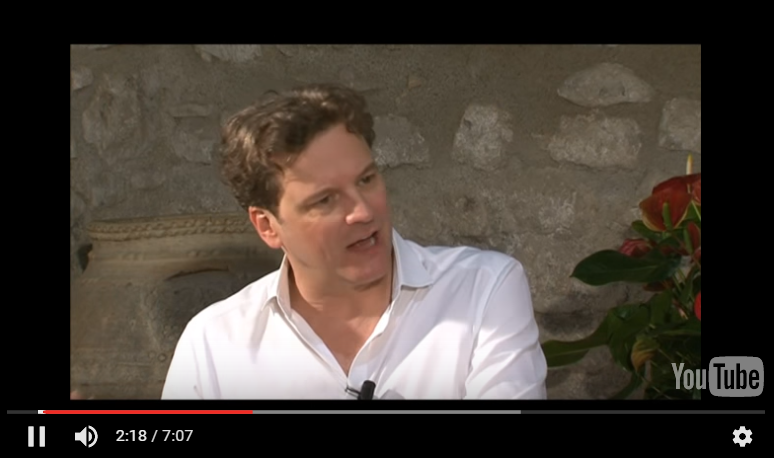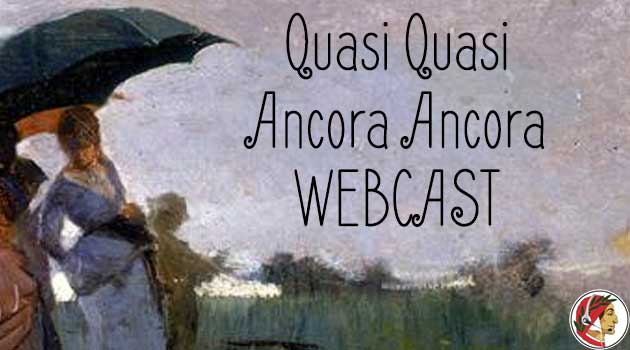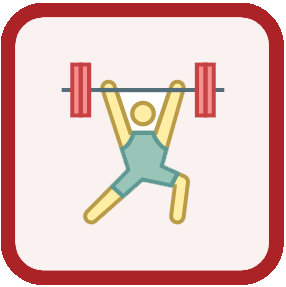Intervista a Colin Firth
Il famoso attore inglese Colin Firth parla un buon italiano perché sua moglie è italiana. In questa intervista, parla del suo rapporto con l’Italia e in particolare con la Toscana. Bravo Colin!
DURATA – 7:00
LIVELLO – Upper Intermediate
Quiz-summary
0 of 1 questions completed
Questions:
- 1
Information
LOADING QUIZ...
You have already completed the quiz before. Hence you can not start it again.
Quiz is loading...
You must sign in or sign up to start the quiz.
You have to finish following quiz, to start this quiz:
Results
0 of 1 questions answered correctly
Time has elapsed
Your score is 0 out of 0 points, (0)
| Average score |
|
| Your score |
|
Categories
- Not categorized 0%
-
Do you want to speak Italian for good? Try a free SkypeTM class.
We teach all levels and focus on natural Italian, the language spoken by ordinary people every day.
[divider_advanced color="rgba(0,0,0,1)" paddingTop="0"]
[one_half][process_steps type="horizontal" size="small"] [process_step title="Write your name and email." icon_image="17615"] [/process_step] [process_step title="Choose a date and time" icon_image="18154"] [/process_step] [process_step title="Your native teacher will contact you." icon_image="16062"] [/process_step] [/process_steps][/one_half] [one_half_last][/one_half_last]
- 1
- Answered
- Review
-
Question 1 of 1
1. Question
10 pointsAscolta l'intervista e seleziona le frasi vere
[tvideo type="youtube" clip_id="U-ZWufvZN7g" fs="false" start="19" loop="false" rel="false" showinfo="false" modestbranding="true" theme="light"]Correct
Le frasi sbagliate sono:
[list icon="lightbulb" color="red"]- Colin ha una visione romantica dell'Italia. NO conosce troppo bene l'Italia per avere una visione solo romantica.
- Ha tre bambini italiani. NO ha due bambini italiani.
- Passa spesso una notte a Firenze. NO non ha mai passato una notte a Firenze.
- Colin ammira "i prigioni" le famoste statue di Leonardo. NO ammira "i prigioni" ma lo scultore è Michelangelo.
- Non è particolarmente attratto dal cinema italiano NO gli piacerebbe molto lavorare con qualche regista italiano.
Incorrect
Le frasi sbagliate sono:
[list icon="lightbulb" color="red"]- Colin ha una visione romantica dell'Italia. NO conosce troppo bene l'Italia per avere una visione solo romantica.
- Ha tre bambini italiani. NO ha due bambini italiani.
- Passa spesso una notte a Firenze. NO non ha mai passato una notte a Firenze.
- Colin ammira "i prigioni" le famoste statue di Leonardo. NO ammira "i prigioni" ma lo scultore è Michelangelo.
- Non è particolarmente attratto dal cinema italiano NO gli piacerebbe molto lavorare con qualche regista italiano.









